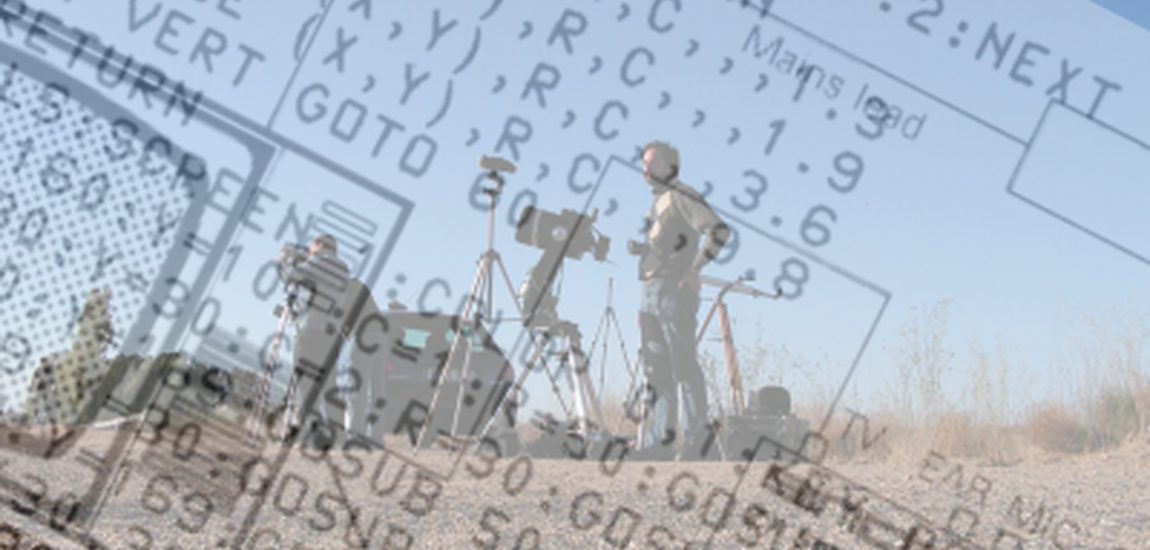
Autodidacticism, hobbies and your professional future
My students often ask me how I learnt to make nice images and graphs for papers, cool diagrams, videos or programs. “What software do you use?” — is the typical question. So here goes some facts about my personal experiences to show the benefits of autodidacticism and hobbies… and how these can influence your future.

EXAMPLE 1. I started learning computer programming languages by myself when I was 13. Computers were very fascinating then — that’s one of the reasons the 80s were cool. My first computer was a Sinclair ZX Spectrum with 48 KB of memory, that needed to be connected to TV screen to work and required using a cassette tape recorder to save the programs (saving/loading a program could often take a few minutes). I used that computer to learn BASIC coding. I remember my very first simple program I did at that age, a simple temperature converter to transform temperatures between degrees Celsius, Farenheit, Kelvin, Rankine, Réaumur… A few years later, with better computers, I learnt other programming languages (C, PASCAL…). This opened a new world to me: at the age of 14 I was already familiarised with new concepts — from easy statistics, matrices to formal logic. I enjoyed the beauty of logic in programming — how useful it is for developing capacities for problem solving. I vividly remember in the early 90s, how a friend or mine and I made a C-code program to generate the Hénon-Pomeau attractor (including simple zoom in and out options). Learning programming and coding by myself when I was young would help me many times — for example, when I did my MSc thesis using MathCad to model reactive transport in porous media.
EXAMPLE 2. Since I was 10 years-old I loved astronomy and astrophysics. I got my first telescope at 13. For many years I got exposed to many concepts in chemistry, physics, geology, maths — which unfortunately were not taught at my (monotonous old-fashion) high school. Later on I learnt new and captivating topics, like CCD imaging, digital image processing, orbital mechanics, nuclear chemistry, optics… I felt really proud when (at 15) I understood the proton-proton and CNO cycles happening in the cores of stars, or when I understood the Milankovitch cycles, or the Hertzsprung–Russell diagram. In fact, this hobby exposed me to many interesting concepts in many fields of science and allowed me to identify my professional goals. At the age of 16-17 I knew really well who and what I wanted to become in life. I sometimes considered the possibility of studying astrophysics, but planetary sciences (including rocks and minerals) soon became my favourite topic, because it connects the atomic to the planetary scale, as well as processes happening in femtoseconds all the way to billions of years.
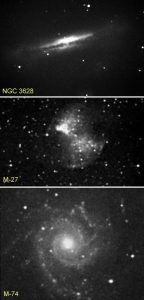
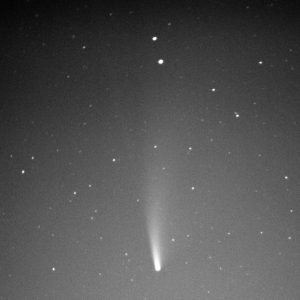
It goes without saying that it was a great pleasure to learn how to use astronomical equipment (telescopes, CCD cameras, software). Nothing is more rewarding than identifying what you see and understanding your place in the Universe when you look at the night sky. I remember that at the time I was beginning my PhD I was already participating in observation campaigns led by the American Association of Variable Star Observers to study several cataclysmic variable stars and novae (with photometric observations) and also carrying out astrometry of recently discovered comets. All these activities were not only very satisfying, but at the same time really useful to learn data analysis… something that would became even more helpful (professionally speaking) later, during my PhD.
EXAMPLE 3. When I was 16 I joined an astronomy club. For several years (mainly 1997-2002, while I was finishing my MSc and beginning my PhD) I was also responsible for the design and contents of the 40-page club paper magazine, published twice a year. I learnt how to design the layout of the magazine using Aldus Pagemaker (software discontinued since 2004), Photoshop, Origin and MS Office. I learnt image treatment, design of graphs and charts. This would help me a lot years later to make nice images and graphs for my PhD thesis, papers and proposals. In fact one of the direct (and unexpected) consequences of having acquired these skills in image treatment as a hobby is that, years later, in 2012, I became the Graphical Advisor for the EAG journal Geochemical Perspectives, still going strong…
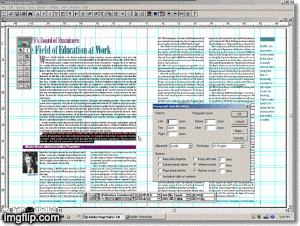
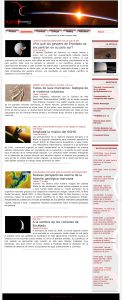
EXAMPLE 4. Around year 2000 I started a website in Spanish named “Astroenlazador” (“Astrolink”) with two great friends. That website would run until 2008 and included news about astronomy, astrophysics, planetary sciences and geosciences. Astroenlazador started as a modest website that within months grew to a massive web portal that was updated every single day, with hundreds of news per year, interviews to ESA/NASA scientists, information resources, coverage of planetary missions and opinion columns. The website received hundreds of visits every day, sometimes thousands during special events. And this happened years before ANY modern social networks or blogs. It became my perfect training to learn the basics of on-line outreach… and somehow this would become my “visit card” of “launch pad” to later become part of the Communications Committee of the EAG, making videos for the Goldschmidt Conference, or contributing to the development of this blogosphere in 2012.
As a final idea: Autodidacticism and hobbies always help to develop new skills and to discover what you are good at. My hobbies allowed me to identify my future path. Everything I learnt by myself surprisingly –or not– became very useful to me years afterwards.
What can I say to the next generation of researchers? Be curious, explore your personal interests, enjoy the pleasure of learning on your own, read books and listen mainly to your own inner voice. If you believe in yourself you will achieve the level of success you desire and will build your future. Also keep in mind: 30 years ago (and longer) it was not simple at all to get access to specialised information, to buy technical books on many specific topics, or software — in fact, it was a triumph to find some technical books (e.g., detailed books for observing deep sky objects, or about mineral sciences or planetary sciences). Fortunately things have changed a lot and nowadays it is insanely easy to obtain loads of technical information, or purchase/download books online… from home! Today there is no excuse for not learning — so put time-wasting distractions aside and move forward: let the adventure begin.

About the author
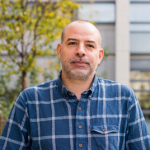
Dr. Juan Diego Rodriguez-Blanco is a Ussher Assistant Professor in Nanomineralogy at the Department of Geology, School of Natural Sciences, Trinity College Dublin.
